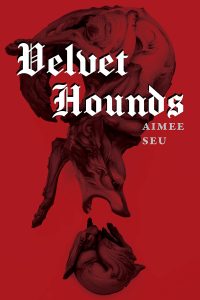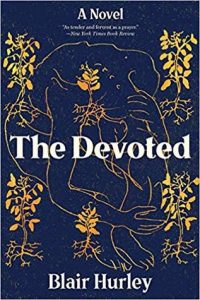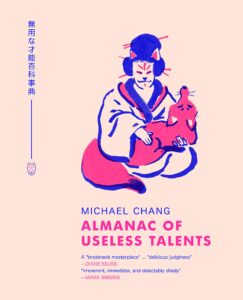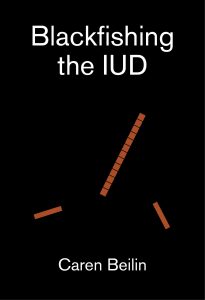Poetry. 73 pgs. University of Akron Press. March 2022.
I have always felt sorry for the Iliad’s unsparing treatment of Paris. Saddled with the burden of divine Judgement; scorned and shadowed by Hector; hated among the ranks of Trojans, Achaeans, and readers all; I’ve nursed a soft spot for the beautiful coward. But, save myself, the centuries have not provided him a more forgiving audience. In the first poem of Aimee Seu’s new collection Velvet Hounds, “Family Portrait with Cadillac Engulfed in Flames,” the prince’s timeless derision reappears, modernized: “What a pussy, my brothers say of pampered/ Paris / in a Hollywood remake of the mythic history.” Seu sympathizes:
We watch
him fall stupidly through a gnashing
battlefield
as brave men are shredded around him.
Like me passing through my youth somehow
unscathed. And now I come to you, reader,
coward soldier, youngest sibling, baby
of the royal chaos, last to rush from the trench
She takes her contentious place in the expositional family portrait. Fanning out this series of titles, Seu early establishes herself as the tortured, misunderstood inheritor of an epic drama. However, these black marks — coward, youngest, baby of chaos — gleam gold in the light of her unlikely survival. She exits the carnage of her upbringing “hung with medals, here to tell the story.” Though forced into the fray unseasoned and fearful, she emerges formidable and armed with intent. Unlike Paris, Seu answers her call to arms without hesitation; she takes up the mantle of poet “because who will if I don’t.” She ends the collection’s inaugural poem with this explanation, punctuated with finality rather than entreaty. “[W]ho” rests tauntingly within a locked enclosure—interrogative paradoxically nested in declarative. Seu does not solicit outside responses or contributors: “who” is a decoy and inaccessibility its agent. She only feigns asking “who will if I don’t,” so that “.” may answer: nobody. Last from the trench also implies last line of defense.
In the tradition of Paris, Seu strikes her targets from afar. As the archer with his bow upon Troy’s walls, so the poet looses projectiles against those who besiege her: mother, addiction, desperation, disorder, late father. Her arrows sing across mortal, temporal, even generational expanses, and like the original “baby of the royal chaos,” Seu’s aim is true. She strikes with chilling accuracy at moments so far off and fleeting that we wonder how she spots them at all—how, in “Portrait of Boy Preserved in Chlorine,” she peers down from her lofty post of adulthood where a lover storms away “swearing, [his] mouth like bludgeoned fruit” to espy a shard glinting on the horizon of him
fourteen, underwater on the day we met
floating in a turquoise near-silent pause,
ribcage raked with shadow, arms floating
aloft like wingspan
Her lines are not necessarily meant to puncture—rather, they dart their subjects to the ground, allowing Seu to examine them up close, in granular detail and high color. They not only pin down remote hurts, but also gently secure long kept loves: a childhood best friend, a well-worn ribbon of memory.
In “Love Letter to Myself at Sixteen,” Seu’s missile is a missive; the poem interfaces past and present. Current addresses adolescent on the level white plane of the page, eye to eye, and the woman confides in the girl: “I still root for you, still worry/ at your chances.” Addressing the past, Seu’s back faces the future at which her adolescent self gazes, and all the poet can offer is uncertain support.
“Bulimic Soul Says to Bulimic Body” likewise puts Seu’s constituents in conversation, however in this case hierarchy overrides the dialogue. Soul commands:
Hail the first course of milk
or broth or mashed up thing, to ease
the resurrection. Hail the battered
poultry, Hail the twisted gummy
sweet, the frosting, the manna
of potato chip, Hail the awful sins
of bread and rice, O Hail
reversal: last thing consumed
Body is not allowed a reply, at least in words. It responds only in obedient genuflection. Seu, familiar with the church through her mother’s Christian fundamentalism and her late father’s role as a pastor, indicates the religious confusion of bulimia: in Catholicism, Hail Marys are said both in prayer and in penance. Worship and punishment overlap. “Hail” also proves Seu a savvy wordsmith with its homophonic double significance—hale, meaning to draw out forcibly, is apt. Spoken, Body cannot discern whether Soul bids her to praise food or expel it.
Hail’s conspicuous midline Capitalization visualizes the imposition of Soul’s injunction. Its presence feels both sudden and constant: Hail to kick off a line, Hail to cap another; Hail between poultry and twisted gummy; Hail after the resurrection; Hail reversal “in public bathrooms and janitors’ closets,/ in sinks and showers and neighbors’ trash/ bins,” as Seu later details in “Telling Your Best Friend.” Her use of staccato interjections recurs in “Cape May Church Retreat: Thirteen,” in which she embeds slashes within the text’s body. The character which indicates a poetic line break appears counterintuitively midline, suggesting that the language, like its author, feels compelled to occupy as little space as possible. The poem recounts how Seu’s and a friend’s mothers pitted them against each other in an endurance race of hunger. The visibly truncated verse commiserates with the thirteen-year-olds—it too is not at liberty to expand to its rightful size.
Seu’s mother, a recurring subject, is apparently in notable company as her progenitor. According to Philip Metres, judge of the 2020 Akron Poetry Prize of which Velvet Hounds took first place, Seu is a “descendent of Sappho, Sexton, and Plath.” The collection surely teems with the queerness, darkness, and seduction of this triumvirate. A reader delights in her nods to Sappho; as the great lyricist’s lover was “the sweet apple which reddens upon the topmost bough,” so Seu’s is a ruby round fruit in “Ode to Pomegranates:”
Garnet jackpot packed tight
in this diction of foam.
Magenta honeycomb
of sluice & syrup.
I hold you up to the sun
& you glow. You are an edible jewel.
Through a less linear link than to Sappho, Sexton, and Plath, I find that Seu also has ties to Baudelaire. She is perhaps not a direct descendant of him, but instead a distant relation who bears his resemblance. Her musings on beauty amidst the disillusionment of modern life, miscreancy, and lesbian sex (although hers are free of Baudelaire’s inherent voyeurism) harken back to his early work. The Frenchman wrote of wine, the American writes of Benzos. Both poets flaunt a magnetic deviancy and draw inspiration from vice. Baudelaire wrote to his publisher that “[a]ll literature derives from sin—I mean this quite seriously.” Seu echoes, “[t]he knowledge of good bores me/ but oh, the sugary knowledge of evil.” However, unlike Baudelaire’s original readers, we may savor Seu’s sugary knowledge in full. In 1857, a French court excised six poems from Les Fleurs du Mal for their explicitness. The court ruled that the poems, including “Lesbos” and “Femmes damnés,” would “necessarily lead to the excitement of the senses by a crude realism offensive to public decency.” Luckily, standards have evolved and Seu excites the senses unprosecuted; the public is free to appreciate her unabridged “crude realism” in poems such as “Clitoral” and “G-Spot.” Les Fleurs du Mal’s original title, Les Lesbiennes, came from those stricken sections on queer sexuality, and thus had to be altered. Seu’s title, however, has the freedom to center eroticism and in fact comes from “G-Spot,” in which the poet likens orgasm to “[v]elvet hounds unreined.” We may read the collection then as an act of emancipation—Seu’s pack of loosed beasts, her dormant swell of feeling coaxed out word by meticulous word. Her poems are pains, frustrations, and pleasures released: let them overtake you.
Velvet Hounds is available through University of Akron Press. Purchase it now through Barnes & Noble.
Like what you’re reading?
Get new stories or poetry sent to your inbox. Drop your email below to start >>>
OR grab a print issue
Stories, poems and essays in a beautifully designed magazine you can hold in your hands.
GO TO ISSUESNEW book release
Ghosts Caught on Film by Barrett Bowlin. Order the book of which Dan Chaon calls “a thrilling first collection that marks a beginning for a major talent.”
GET THE BOOK



